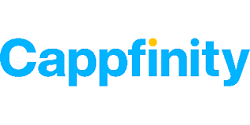Content provided by: Cappfinity
Nicky Garcea, Co-founder and Chief Customer Officer at Cappfinity considers the impact of the pandemic on student recruitment and what this means for the future.
Before the pandemic, it was business as usual: everyone was tucked into their cubicles, being as productive as possible, and perhaps waiting for the next great opportunity to move ahead.
Covid-19 changed that, possibly forever. Now companies need to rethink the kinds of talent they want or need to attract, and define talent slightly differently than they were accustomed to doing. Even here at Cappfinity, we’re asking that candidates describe their strengths, soft or durable skills in greater detail, rather than focus on a history of their past experience.
What does this changing hiring landscape look like?
In the customer service arena, soft skills might include traits like empathy, patience and delivering stellar advice. If those skills were developed in a restaurant setting, but the candidate is applying to work in a call centre, in the past they may have been considered a poor candidate. Now, however, we see that such an individual can actually perform brilliantly across industries, based on the crossover skills they developed. As a result, we are encouraging our hiring clients to advertise with a greater emphasis on soft skills for the jobs of the future.
Where have all the workers gone?
We have definitely been hearing from many employers that the pipeline has gone elsewhere during the pandemic, but this is not necessarily a bad thing.
For some, it is about hygiene factors like salary — with low-paid employees migrating away after finding better jobs with benefits and higher pay scales. Those companies are getting a wake-up call to offer more competitive pay with better benefits and perks in order to attract better talent in the future.
For others, it’s all about offering more opportunities for in-role development that goes beyond just training. This is about contribution and fostering a deeper sense of belonging. It may take the form of offering line managers a greater connection to support and culture, or perhaps it is about offering highly capable employees a hybrid work situation that includes both office and work-from-home time. In that scope, there may be generational or even situational differences, with a cross-section of employees tending to prefer more face-to-face office time, and other staff more accustomed to taking ownership of their time while working from home and via Zoom.
Innovating for the ‘next normal’
What we learned during the pandemic was that whilst some love the digital nomad lifestyle, others are yearning to be back in the office. The one thing everyone wants, however, is better balance. We’ve proven that work-from-home can work, but we must also recognise that some workers need a more personal connection — and both workstyles are okay.
So, whilst The Society for Human Resource Management (SHRM) has predicted a tsunami over work-from-home demands, what we’re actually seeing is a huge leap forward in terms of flexibility, and that is driven by the very human need for personal connection.
The pandemic’s ‘silver linings’
Social connection is redefining the workplace, giving existing workers a new purpose — but what about attracting new talent in the days to come? That’s where many companies have learned that they have many more tools in their recruitment and retention toolboxes.
Recently, my company collaborated with career and multigenerational author Lindsey Pollak on a special research project, as together we sought to better understand how some companies were able to thrive during the pandemic, and how that might inform or refine their hiring process.
In addition to our findings, the research had a larger goal to support organisations in their recruiting and onboarding efforts. This resulted in the development and launch of a platform designed to help organisations identify candidates with the optimal blend of strengths, skills and experience — but also the preferences and values — that will help them to continue to build culture and success in the ‘new normal’ of 2021 and beyond.
Will there be a ‘talent war’ going forward? Yes, but it may not be what most are expecting. It will mostly be about companies needing to tailor their offerings to an ever-evolving workforce.
The bottom line in a post-pandemic world? Companies will need to think about talent in a different, more enlightened way — and their employees will reward them with their talents, insights, and deeper dedication.



Nicky, I really like the emphasis you give to strengths and skills in your own R & S. It’s been especially hard for many recent grads to secure in-person placements or work experience of any kind, so the ability to focus on what you have and can/could do helps to mitigate this. Many students have been migrating away from LinkedIn according to Handshake’s research, in part as they haven’t been able to acquire placement experience. If recruiters were to focus more on strengths, skills and potential this may encourage more to feel they can and should apply for graduate roles.